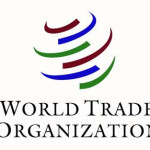- Industry: Government
- Number of terms: 7177
- Number of blossaries: 0
- Company Profile:
The World Trade Organization (WTO) deals with the global rules of trade between nations. Its main function is to ensure that trade flows as smoothly, predictably and freely as possible.
Programs by developed countries granting preferential tariffs to imports from developing countries.
Industry:Economy
An international nomenclature developed by the World Customs Organization, which is arranged in six-digit codes allowing all participating countries to classify traded goods on a common basis. Beyond the six-digit level, countries are free to introduce national distinctions for tariffs and many other purposes.
Industry:Economy
Used in tariff negotiations for much steeper reductions in higher tariffs than in lower tariffs, the final rates being harmonized i.e. closer together.
Industry:Economy
The WTO High-Level Meeting for least-developed countries, held in October 1997 in Geneva.
Industry:Economy
The World Customs Organization's Harmonized System (HS) uses code numbers to define products. A code with a low number of digits defines broad categories of products; additional digits indicate sub-divisions into more detailed definitions. Six-digit codes are the most detailed definitions that are used as standard. Countries can add more digits for their own coding to subdivide the definitions further according to their own needs. Products defined at the most detailed level are tariff lines.
Industry:Economy
the need to obtain a permit for importing a product; administrative procedures for obtaining an import license.
Industry:Economy
Ensuring all members have input into a process even when meetings involve only some of them. In WTO negotiations and other decision-making, ideas are tested and issues are discussed in a variety of meetings, many of them with only some members present. Members approve of this process so long as information is shared and they have input into it either by being present or being represented by a group coordinator. The final decision can only be taken by a formal meeting of the full membership.
Industry:Economy
Trade liberalizing commitments in services which members are prepared to make early on.
Industry:Economy
In textiles and clothing, the phasing out of Multifibre Arrangement restrictions in four stages starting on 1 January 1995 and ending on 1 January 2005.
Industry:Economy
